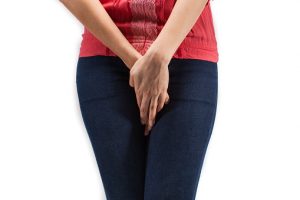 Overactive bladder syndrome (OAB) may be caused by bacterial infection. In OAB, the bladder muscles spontaneously contract before the bladder gets full, leading to urgency and frequency of urination and even causing bladder leaks.
Overactive bladder syndrome (OAB) may be caused by bacterial infection. In OAB, the bladder muscles spontaneously contract before the bladder gets full, leading to urgency and frequency of urination and even causing bladder leaks.
Researchers found low-grade inflammation in some OAB patients which was not detected through the conventional NHS testing. This low-grade inflammation may lead to an increased sensory nerve excitation and OAB symptoms.
Advertisement
The presence of low-grade inflammation was linked to bacteria living in the bladder walls. Due to observational nature of the study, no definite conclusions can be drawn, but the findings may prompt clinical reclassification of OAB and may be useful for future treatments.
Other causes of overactive bladder
If you’ve recently been diagnosed with OAB or if you think you may have this syndrome, here are some possible causes of your condition, which are not age related.
Neurological disorders
A neurological disorder can bring on OAB. Possible conditions include:
- Dementia
- Parkinson’s disease
- Multiple sclerosis
- Spinal injury
- Stroke
- Back problems (disc hernia, degenerative disc disease)
- Diabetic neuropathy
In these cases, the nerve signals that tell us when to go get disrupted. If trauma occurred during a surgery, OAB can be only temporary. But depending on the results of the surgery, it can be long lasting as well.
Medications
Although medications are prescribed to address a condition, they can lead to other issues – such as OAB. Water pills, for example, are often prescribed for blood pressure to make sodium leave the system. In turn, they can cause a higher frequency of urination. Furthermore, pills containing caffeine also work as a diuretic and can make you visit the washroom more often, too.
Often, certain medications require you to drink more fluid, once again causing the symptoms of OAB. So if you’re finding your treatment is making you urinate more, speak with your doctor about possible alternatives.
Medical conditions
Similar to neurological disorders, pre-existing medical conditions can also bring on OAB. This scenario involves treating the underlying condition to lower the OAB symptoms. For example, diabetes can cause nerve damage, which can once again disrupt the bladder’s response signals to the brain. If you can get your diabetes under control, you’ll notice some improvement in the symptoms. Other conditions that may cause an overactive bladder are kidney disease, bladder tumors, and urinary tract infections (UTIs).
In the case of the latter, bacteria cause an infection, making the walls of the bladder more active. A UTI can easily be treated with antibiotics, so the OAB symptoms will subside soon after.
Diet
Your diet is an important aspect in controlling your OAB. If you’ve been diagnosed with an overactive bladder, you should steer clear of acidic foods like tomatoes and oranges, curb your intake of caffeine and alcohol, stay hydrated, and get enough fiber.
Taking in adequate fiber is important for OAB treatment because without fiber you can develop constipation, which creates a blockage for bladder outflow.
Maintaining a healthy weight is also great for preventing obesity-related OAB symptoms. Enjoying a balanced diet with essential nutrients is not only crucial for our overall health, but quite beneficial for our bladders, too.
Foods to avoid with an overactive bladder include caffeinated foods and beverages, alcohol, spicy foods, citrus foods and beverages, carbonated foods, milk and milk products, sugar or honey, and artificial sweeteners.
Advertisement
Foods that are good to enjoy with an overactive bladder include non-citrus fruits, grains, legumes, and vegetables.
Natural remedies for overactive bladder
Regardless of whether you have OAB, you need to take good care of your bladder health. Here are some tips to keep your bladder healthy:
- Never hold in your urine for too long as it can damage your nerves that send a response to your brain instructing you when to go.
- Stay hydrated so your body can expel toxins and bacteria to avoid any future UTIs.
- Perform Kegel exercises. This involves squeezing and relaxing the pelvic floor muscles to maintain bladder control.
- Quit smoking as it irritates the bladder.
By following these bladder-friendly tips and being aware of the possible causes of OAB, you can ensure your bladder stays healthy for many more years to come.
